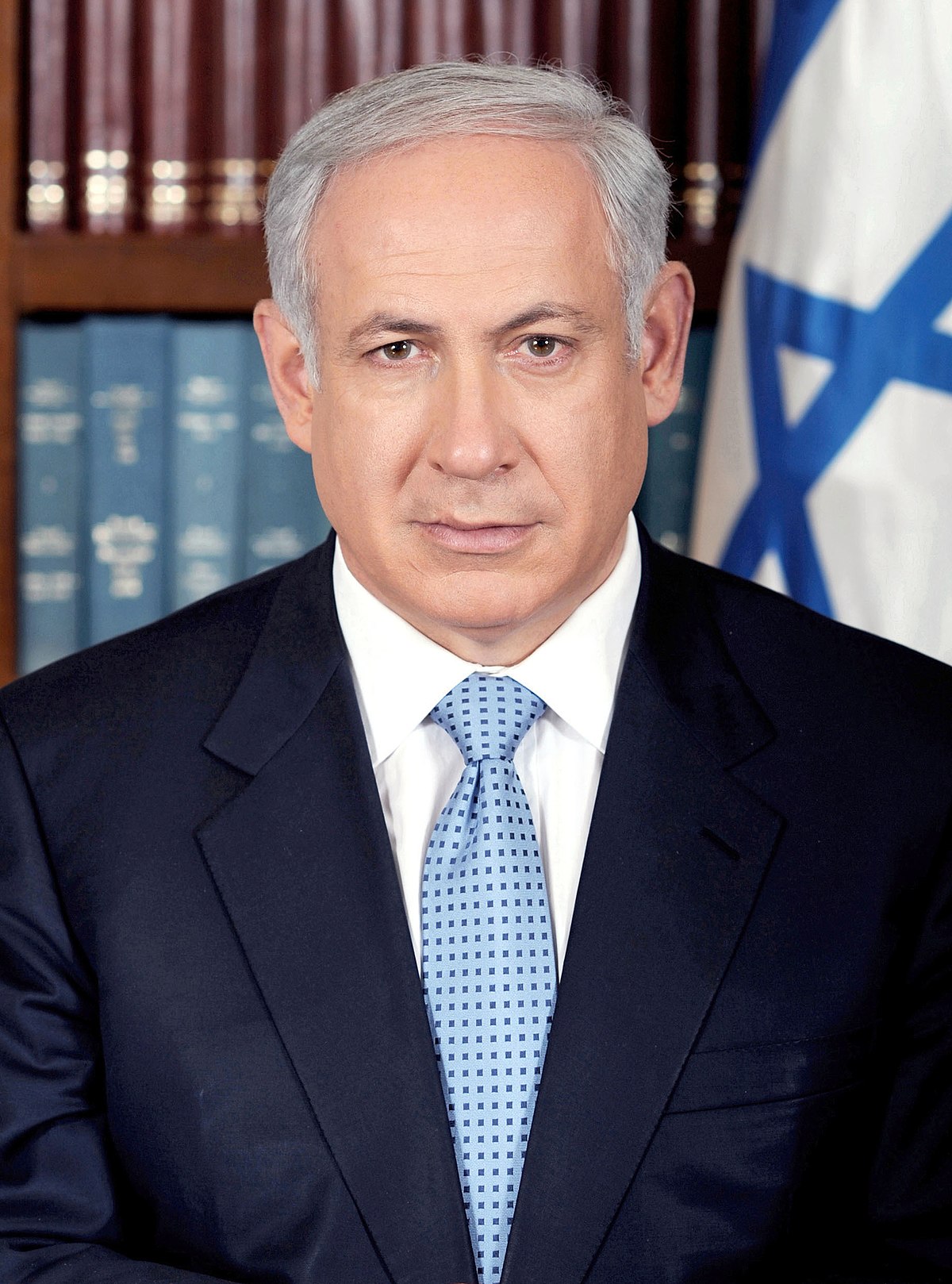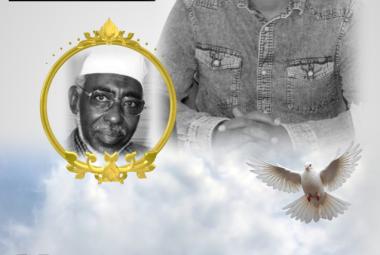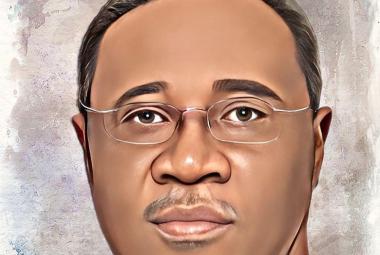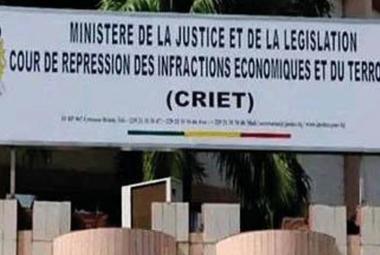A few years ago, on the occasion of Barack Obama's accession to the White House, I took the liberty of sending him an "Open Letter" to remind him of our very distant cousin ties as Luo or Louo or even Lwo. Because wherever they are, all the Luo or Louo or even Lwo have one and the same origin, namely the Nile Valley and more precisely the Barh el Ghazal. Although more distant Cousin than Barack Obama, Benjamin Netanhyahou, alias “Bibi” remains a Cousin nonetheless. And his sacred political longevity could only be right in the end of all my procrastination.
Dearest Cousin “Bibi”,
No, it's too familiar...
Dearest Cousin Benjamin Netanyahu,
No, it's not diplomatic...
Your Excellency Former Prime Minister and perhaps new Prime Minister to come,
No, it's not brotherly...
Dearest Cousin,
About ten years ago, when I affirmed in the first historical essay that, between Hebrew and Nateni (Editor's note: language of the Natemba), there were much more than similarities, those who did not believe me first were the Natemba themselves. And yet, even if I did not yet have all the elements to understand, I already wrote in Nubia and the African origins of the peoples, languages and religions of the world, Editions Dagan, 2013: "If the Jews and the descendants of the last Nubians of Meroe who conquered West Africa do not have the same distant ancestors, one is entitled to ask how one should explain the Nubian roots of the Jewish language and religion that we still find today in the thousand-year-old traditions of Nubian descendants”.
Through intermediaries, in this case people of Jewish descent, Rabbis had brought grist to my mill by confirming that what I had initially considered to be my working hypothesis was not wrong. Quite the contrary. For you who are a Son of a Rabbi, you must better understand how their assessments of my presuppositions were not insignificant.
After the publication of several historical essays, including in particular ANCIENT ISRAEL The origins of the Yahoud priests and the birth of Judaism, Editions Complicités, Paris, 2020 (ISRAËL ANCIEN Les origines des Prêtres Yahoud et la naissance du Judaïsme, Editions Complicités, Paris, 2020), I can today - with strong arguments and details - confirm my first suspicions and much more. I will most certainly not expand here on this subject, but I acquired the certainty that NETANYAHOU was an authentically ancient Nubian name even before being ancient Egyptian. It is a name that is the strict prerogative of ancient Nubia and an exclusively tribal name at the origin.
My reading of the book The Secrets of Exodus, The Egyptian Origin of the Hebrews, Paris, 2000, LGF, 2015 (Les Secrets de l'Exode, L'Origine égyptienne des Hébreux, Paris, 2000, LGF, 2015) by Messod and Roger Sabbah only told me that I was not wrong from the start, and that my deductions were correct.
“When you take the names which many believe to be proper names of the Hebrews, many of them are actually Egyptian-Nubian. One of the most eloquent examples is that of one of Israel's most famous prime ministers: Benjamin Netanyahu. This is, without a doubt, an authentic Nubian name. Translated into Hebrew by "God gave", in ancient Nubian NT-YWH or in modern Nateni Net Yahoun means literally "The man of God" or in other words: "Godgiven", "Gift of God"... His first name Ben'Yamin means in Hebrew: "Son of the right hand" and in ancient Nubian "Son of the right hand" also with Ben: "who descends from" or "comes from" (son) and Ya-Wota or Yota (right hand) or in other words "lucky", "blessed" "fortunate" "son of fortune"...
The authors of The Secrets of Exodus: The Egyptian Origin of the Hebrews, themselves Hebrews for the rest, have established that under the guise of official onomastics, it is necessary to understand well and the deep meaning of the religious message of the Old Testament and the nature of the relationship between Hebrews and ancient Egyptians, beyond the now hackneyed stereotypes”.
It is with this analysis that I share that I allow myself to qualify you as Cousin. Because, at the origin of the foundation of ancient Egypt, there is Luo or Louo or Lwo from which the current Natemba descend distantly. The term Natyahou or Netyahou (in the singular) and Natyama or Netyema and is actually only a synonym for saying Luo or Louo or even Lwo. In other words, it is used to designate the Priest-Sacrificers, the Officiants of the Netjer or Neter. It is also synonymous with Theos, and therefore everything related to God.
In NETANYAHOU, we could logically say even if it is NET or NAT + YAHOU which is equivalent to Natyama or Netyema, the EN or AN is missing. Indeed, it is necessary to know the subtleties of these ancient languages to understand that the EN or AN = APPEAR or SPRING is already in the NET or NAT and that it is quite simply the effect of emphasis which makes the connection. Without its absence, however, fundamentally hindering understanding. It is exactly as in AMENHOTEP III (in ancient Egyptian) or AMENOPHIS III (in Greek), the Father of AKHENATON who is also AMENOPHIS IV.
It is the same in MENORAH which means in Hebrew. And as I have already said in my historical essay ANCIENT ISRAEL The origins of the Yahoud priests and the birth of Judaism, Editions Complicités, Paris, 2020: "Furthermore, if one is interested in this word Menorah of a From a philological point of view, it emerges by decomposition Me-No-Rah or MeNoRah that some translate as “which comes from the flame” which, according to Kabbalah, is none other than the Shekhina or “presence of God”. The prefix Me referring to the origin of a thing and, in the Hebrew language, Norah or norah, -nourah, nour, nor meaning flame. In the language of the Natemba, Me means rather "I Am" and Men or Meno: "I come from...or I come from..." (The root is the same as in AMENHOTEP, the name of Akhenaten and of his father), Rah means God, the god Ra, of course. Especially since the Natemba know of God only through his representation which is Ra and no other. Even the term Shekhina or Chekhina: שכינה is of Egyptian-Nubian origin”.
As I spoke earlier of a tribal and authentically ancient Nubian name that cannot be found in any other tribe, should I, incidentally, specify that this is the case with my patronymic name Teiga but which is a francization of the two possible meanings Tièga or Tiéga and which cannot be found in any other Tribe of the Natemba other than that of the Nanfa Kwèba (Descendants of Scorpion or Lineage of the Scorpions). The name Tièga or Tiéga is closely associated with Theos. This is all that allows the Onomastics of the ancient Peoples of the Nile Valley to trace the origins without any possible confusion. Because there are names which are only the strict prerogative of a Tribe and even of a Clan. And if I wrote a historical essay exclusively devoted to the names of ancient Egypt entitled Dictionary of ancestral names of ancient Egypt, Éditions Complicités, Paris, 2021 (Dictionnaire des noms ancestraux de l’Égypte antique, Éditions Complicités, Paris, 2021), it is to invite contradiction. Onomastics allows us to prove with forceful demonstration why the names thus mentioned are purely and simply Negro-African names. However, in those remote times, when interbreeding was not yet so advanced, a NAME was enough to tell where a third person came from.
I insist and I persist here to say that those who accused Professor Cheikh Anta Diop of relying on Linguistics to argue that ancient Egypt was populated by Blacks, did so wrongly. Because they understand absolutely nothing about Negro-African Languages (NAL) in particular.
You will most certainly ask me how I know all this? This is, moreover, the recurring question that many ask me. And I will answer you that if I became the Secretary General of the National Community of Voodoo Worship and Traditional Religions of Benin Republic at the end of the 1990s, it was not by chance. At eleven years old, when most young people of my age devoted themselves to other activities, I had already toured all the traditional convents in the North-West of Benin Republic and met all the characters who were supposed to master ancient History or still hold endogenous Knowledge. Not to mention that, maternally, I descend from a long line of "GRIOTS" whose roots go back for millennia to the Nile Valley and of which my generation is, without a doubt, the one who has clearly interrupted the chain of transmission of Ancient knowledge. In short, when you have a background, things become less complicated to decipher and understand.
Dearest Cousin Benjamin Netanyahu,
I thought it was much shorter than that. But, with your permission, I'll stop there. I only spoke to you about the name NETANYAHOU only. In a possible second letter, I could dwell on your first name Benjamin, which very curiously is also mine. Especially since I am the last born in my family. And, as I keep pointing out, Hebrew and Nateni share many things that we would not believe, a priori. This is easily explained if we refer to the ancient history of the Nile Valley.
It's been a long time since I hesitated to send you a little letter. A little, I say. I hope it will be as short as possible, because for us a letter is always like greetings. We always know when we start them but never when they will stop. It is not to ask you for any favor as is the tradition in Africa, far from it. Even less to talk politics. This is by no means the object. Just a bit of history. Because we can't be called NETANYAHOU without it clicking in my head. It's just that by dint of talking about it around me, my relatives ended up asking me when I was finally going to decide to write to my "Cousin" Netanyahu...
When I said Dearest Cousin, I was already following the gazes of thousands of Natemba who were wondering how it could be that a Hebrew named Benjamin Netanyahu from Israel could be a Cousin to a Natemba from Tayakou in Benin Republic.
I did not want to address you like my Dearest Cousin Barack Obama because you are not Lwo. The familiarity in principle is a matter of Lwo. “It has nothing to do with any lack of respect, far from it. It is that the formal mode quite simply does not exist with us. Indeed, our ancestors, the Luo, hardly made any difference between a man and a man. Whatever his age or his function”, as I had explained in his time.
It says that anyone who was about to laugh at me for calling you a Cousin can now put the smirk at the corner of their mouth for good so that it doesn't go any further to their ears. It is funny to write to such an illustrious Cousin whom one does not know, as I usually say. Even if at home in Africa, we are all Cousins, there is nevertheless Cousin and Cousin. And, what's more, you are not a Cousin like the others. You are a Cousin, Son of Rabbi, and also bearing a name which, since the highest antiquity in NUBIA is that which was attributed to the Priest-Sacrificers, and which is moreover, the strict prerogative of my paternal Tribe of our days in Natemba Country.
In his intervention of September 13, 2022, to Vatican News, recognizing that it is all the Religions of the Book – Christianity, Judaism and Islam – which have, in one way or another, a relationship to Africa, Father Georges Mpay Kemboly “invites African Christians not to be complexed or afraid to dialogue with their own cultures. While he recognizes that traditional African religions are often wrongly reduced to their esoteric or obscure side, he calls for not confining them to this aspect. “Traditional African religion should not scare people. It is a universe from which we look at the world. It is also a humus, it is a horizon which allows us to live”, he maintains. During the dark hours of slavery, it was she who allowed many African slaves to survive, he underlines. She was a force of resilience for them. Also, strong in their double heritage, “African Christians” must know and promote the riches of their cultural universe in order to be able to present them to the world. “As much as we enter into dialogue with other external cultures, we are called to a dialogue with our own cultures”, insisted the Congolese Jesuit”. And the Jesuit, Philosopher, Theologian, Historian and Egyptologist, Doctor of the University of Oxford in England is indeed right.
By Marcus Boni Teiga
PS: Raid on Entebbe was for a long time one of my favorite books. And I do not hide from you that I have always admired your Big brother, the Late Commander Yonathan Netanyahu, until today. Perhaps because I was considering a military career and it was ultimately my father, who himself served under the French flags during the Second World War (1939-1945), who advised me against it. I was miles away from imagining that the Natemba that I am could have any connection whatsoever with the Hebrew that you are. And yet...




















